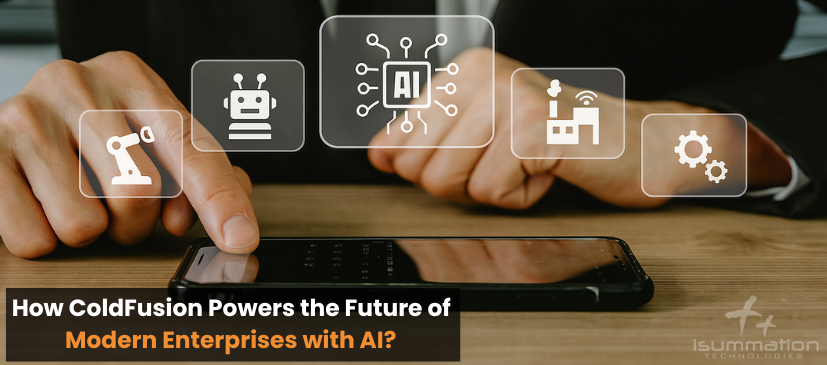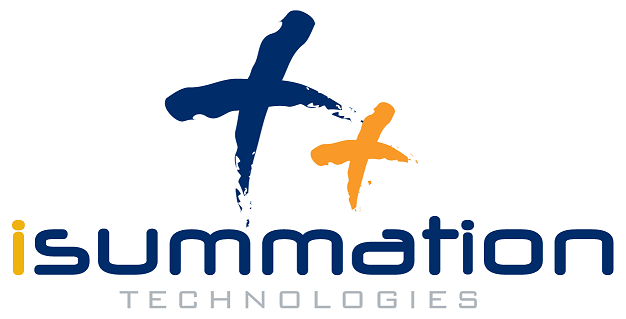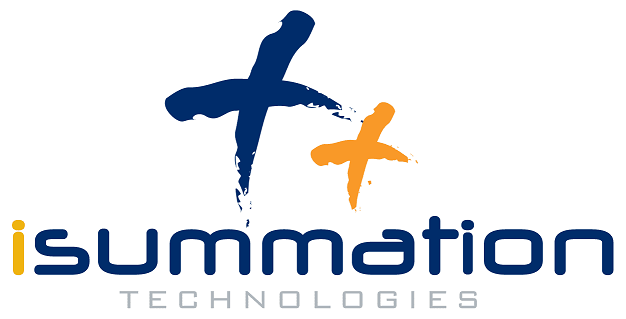- September 17, 2025
- Posted by: iSummation Team
- Category: Development

The landscape of enterprise technology is in a constant state of flux, driven by the relentless pace of innovation. One of the most significant forces shaping this evolution is Artificial Intelligence (AI). As organizations strive to become more agile, data-driven, and efficient, the integration of AI into their core operations is no longer an option but a necessity. This shift presents a challenge for many established technology stacks. However, one platform has consistently demonstrated its ability to adapt and thrive: ColdFusion.
For decades, ColdFusion has been a reliable workhorse for enterprise app development, known for its rapid development capabilities and robust security. Now, with the impending ColdFusion 2025 release, the platform is poised to become a central pillar for building sophisticated AI enterprise solutions. This article explores how ColdFusion is not just keeping pace but actively powering the future of modern enterprises by seamlessly integrating with AI. We will cover its role in modernizing legacy software, its strengths in enterprise app development, and why it’s the smart choice for businesses looking to harness the power of Enterprise AI.
Why Modern Enterprise Still Trust ColdFusion?
Before diving into its AI capabilities, it’s crucial to understand why ColdFusion has remained a preferred choice for thousands of enterprises worldwide. Its longevity is not an accident; it is the result of a deliberate focus on productivity, security, and adaptability.
Rapid and Secure Development Process
At its core, ColdFusion is designed for speed. Its tag-based syntax and extensive library of built-in functions allow developers to build complex applications with significantly less code compared to other languages. This translates directly into faster software development cycles, quicker time-to-market, and lower development costs, all critical factors in the competitive enterprise environment.
Security is another cornerstone of the platform. ColdFusion includes a host of built-in security features and tools designed to protect against common vulnerabilities like cross-site scripting (XSS), SQL injection, and session hijacking. The platform’s lockdown guide provides administrators with a comprehensive framework for hardening servers, ensuring that a ColdFusion application meets stringent enterprise security standards.
Scalability and Performance
Modern enterprises demand applications that can handle high traffic volumes and scale on demand. ColdFusion excels in this area through its robust performance monitoring toolset and clustering capabilities. Administrators can easily group multiple ColdFusion servers into a cluster to distribute workloads, ensure high availability, and maintain optimal performance even under heavy load. This inherent scalability makes it an ideal foundation for mission-critical enterprise app development.
A Thriving Ecosystem and Community
A common misconception is that ColdFusion is a legacy technology with a dwindling community. The reality is quite the opposite. A vibrant community of developers and experts continues to support and innovate on the platform. This ecosystem provides a wealth of resources, from open-source libraries on ForgeBox to professional ColdFusion development Services. For businesses, this means it’s easier than ever to hire ColdFusion developers who are skilled in building and maintaining modern applications.
ColdFusion with AI: A New Frontier for Enterprise Solutions
The true power of modern ColdFusion lies in its ability to integrate with next-generation technologies, most notably Artificial Intelligence. The platform’s architecture makes it exceptionally well-suited for serving as the connective tissue between complex enterprise systems and cutting-edge AI services. The upcoming ColdFusion 2025 is set to deepen this integration, solidifying its position as a key player in AI software development.
Seamless API Integration with AI Services
Most AI for enterprise solution providers, such as OpenAI, Google AI, and Amazon Web Services, expose their functionalities through REST APIs. ColdFusion’s native HTTP client (<𝚌𝚏𝚑𝚝𝚝𝚙>) makes consuming these APIs incredibly straightforward. Developers can easily send requests to AI endpoints, process JSON responses, and integrate machine learning capabilities directly into their applications.
Imagine a customer service portal built on ColdFusion. With just a few lines of code, it can:
- Use a natural language processing (NLP) API to analyse incoming customer support tickets and automatically categorize them by sentiment and topic.
- Integrate with a chatbot API to provide instant, 24/7 support for common queries.
- Connect to a text-to-speech API to create voice-based responses or accessibility features.
This ability to quickly and reliably communicate with external AI services is a game-changer for ColdFusion web development and mobile app development, allowing developers to build intelligent features without needing to become AI experts themselves.
Data Processing and Preparation for Machine Learning
AI models are only as good as the data they are trained on. Enterprises sit on vast reservoirs of data, but this data is often stored in legacy databases, disparate systems, and various formats. ColdFusion is a Master of Data wrangling. Its powerful query and data manipulation capabilities allow it to:
- Connect to virtually any database, from Oracle and SQL Server to NoSQL databases like MongoDB.
- Extract, transform, and load (ETL) data from multiple sources.
- Cleanse and preprocess data to prepare it for training machine learning models.
This makes ColdFusion an invaluable tool in the Enterprise AI pipeline. It can act as the middleware that gathers and prepares data from legacy systems, feeds it into a machine learning model for training, and then retrieves the results to be used within a ColdFusion application.
The Strategic Advantage of Modernizing Legacy Software with AI
Many enterprises are constrained by aging legacy systems that are costly to maintain and difficult to update. A full rewrite is often too risky and expensive. This is where ColdFusion migration and modernization strategies shine. Instead of a “rip and replace” approach, organizations can use ColdFusion to incrementally modernize their applications.
By wrapping a legacy application’s core business logic with a modern ColdFusion API layer, businesses can:
- Preserve Core Functionality: The original system’s proven business logic remains intact.
- Expose Data Safely: ColdFusion acts as a secure gateway, exposing data through modern REST APIs.
- Integrate AI Capabilities: The new API layer can connect to AI services, injecting intelligence into old processes. For example, an old inventory management system can be enhanced with an AI-powered forecasting model to predict demand, all without altering the core legacy code.
This approach to modernizing legacy software de-risks the process, delivers value quickly, and extends the life and usefulness of critical business systems.
ColdFusion 2025: Engineering the Future of Enterprise AI
While the exact ColdFusion 2025 release date is anticipated, the focus of the upcoming version is clear: to provide developers with even more powerful and native tools for AI software development. This new release promises to move beyond simple API integrations to offer first-class support for AI and machine learning workflows.
Anticipated Features in ColdFusion 2025
Based on community discussions and Adobe’s roadmap, several key features are expected to make ColdFusion with AI a native reality:
- Built-in AI Functions and Tags: Imagine tags like <𝚌𝚏𝚕𝚕𝚖> or <𝚌𝚏𝚒𝚖𝚊𝚐𝚎𝚊𝚗𝚊𝚕𝚢𝚜𝚒𝚜> that abstract away the complexity of API calls. A developer could pass text to a tag and get a summarized or translated version back, or pass an image path and receive a description or object detection data. This would dramatically lower the barrier to entry for incorporating AI.
- Native ML Model Integration: The ability to load and execute pre-trained machine learning models (like those in ONNX or TensorFlow Lite format) directly within the CFML runtime. This would enable high-performance, low-latency AI operations without relying on external microservices for every inference task.
- Enhanced Data Science Libraries: Enhancements to ColdFusion’s data processing capabilities, potentially including built-in functions for common data science tasks like statistical analysis, data frame manipulation, and vector calculations, which are fundamental to many AI applications.
- AI-Powered Development Tools: Integration of AI assistants directly into ColdFusion IDEs to help with code generation, debugging, and optimization. This would boost developer productivity and help newcomers get up to speed faster.
These features will transform ColdFusion development, making it one of the most efficient platforms for building and deploying AI enterprise solutions.
DevOps, Mobile, and the Complete Enterprise Ecosystem
A modern enterprise platform cannot exist in a vacuum. It must integrate seamlessly into the broader development and operational ecosystem, including DevOps practices and mobile strategies.
ColdFusion and DevOps Development
The principles of DevOps, automation, continuous integration, and continuous delivery (CI/CD), are fully supported by ColdFusion. The platform’s command-line interface (CLI) allows for the scripting of server setup, configuration, and deployment, making it a perfect fit for automated pipelines.
Using tools like Jenkins, GitLab CI, or GitHub Actions, a DevOps development team can:
- Automate the testing of ColdFusion code with tools like XCTest.
- Package applications into deployable artifacts.
- Automatically deploy updates to staging and production environments with zero downtime.
This compatibility ensures that ColdFusion applications can be developed, tested, and released with the speed and reliability that modern enterprises require.
Powering Mobile App Development
Enterprise mobility is non-negotiable. ColdFusion serves as an ideal backend for mobile app development. By exposing business logic and data through a secure REST API, a single ColdFusion backend can power multiple frontends, including native iOS and Android apps, as well as progressive web apps (PWAs).
This “headless” approach allows the mobile development team to focus on creating the best user experience on the device, while the ColdFusion team focuses on the backend logic, security, and performance. The result is a more efficient and specialized development process.
Building Your AI-Powered Future with ColdFusion
For technology leaders and decision-makers, the path forward is clear. Integrating AI is essential for staying competitive and choosing the right technology to enable that integration is a critical strategic decision. ColdFusion presents a compelling, low-risk, and high-reward option.
When to Choose ColdFusion for Your AI Project?
Consider leveraging ColdFusion as your software development service platform if your organization:
- Has existing investments in ColdFusion and wants to modernize without a complete overhaul.
- Needs to quickly build and deploy AI-powered applications that connect to various enterprise data sources.
- Wants to augment legacy systems with intelligent features like automation, prediction, and natural language understanding.
- Prioritizes rapid development cycles, robust security, and a scalable architecture.
Whether you are building a new application from scratch, planning a ColdFusion migration from an older version, or looking for a way to breathe new life into a legacy system, the platform provides the tools and flexibility needed to succeed.
Finding the Right Expertise
To maximize the benefits of ColdFusion and AI, it’s vital to partner with the right talent. Look for developers and consultants who have a deep understanding of not just CFML but also modern development practices. The ideal partner will have experience in:
- Modern ColdFusion Development: Expertise in recent versions (ColdFusion 2021, 2023, and beyond) and frameworks like ColdBox.
- API Design: The ability to build secure, scalable, and well-documented REST APIs.
- DevOps and Cloud Deployment: Experience with automated CI/CD pipelines and deploying applications to cloud environments like AWS or Azure.
- AI Integration: A practical understanding of how to connect to and consume services from major AI providers.
Engaging with a specialized ColdFusion consulting firm can provide the strategic guidance and technical firepower needed to execute your vision effectively.
Final Thought: A Platform Reimagined for the AI Era
ColdFusion has long been underestimated, but it has quietly evolved into a powerful, modern platform perfectly suited for the demands of the digital enterprise. Its core strengths, rapid development, security, and data connectivity, have made it a reliable foundation for business-critical applications for years. Now, with its seamless ability to integrate with AI and the exciting promise of ColdFusion 2025, it stands ready to lead the next wave of enterprise innovation.
By leveraging ColdFusion, organizations can unlock the value of their existing systems, accelerate the development of new AI enterprise solutions, and build a flexible, scalable, and intelligent technology stack. It is a platform that bridges the past and the future, providing a pragmatic and powerful path for modernizing legacy software and embracing the transformative potential of Enterprise AI. The future of enterprise development is intelligent, and ColdFusion is a key language that will help build it.


